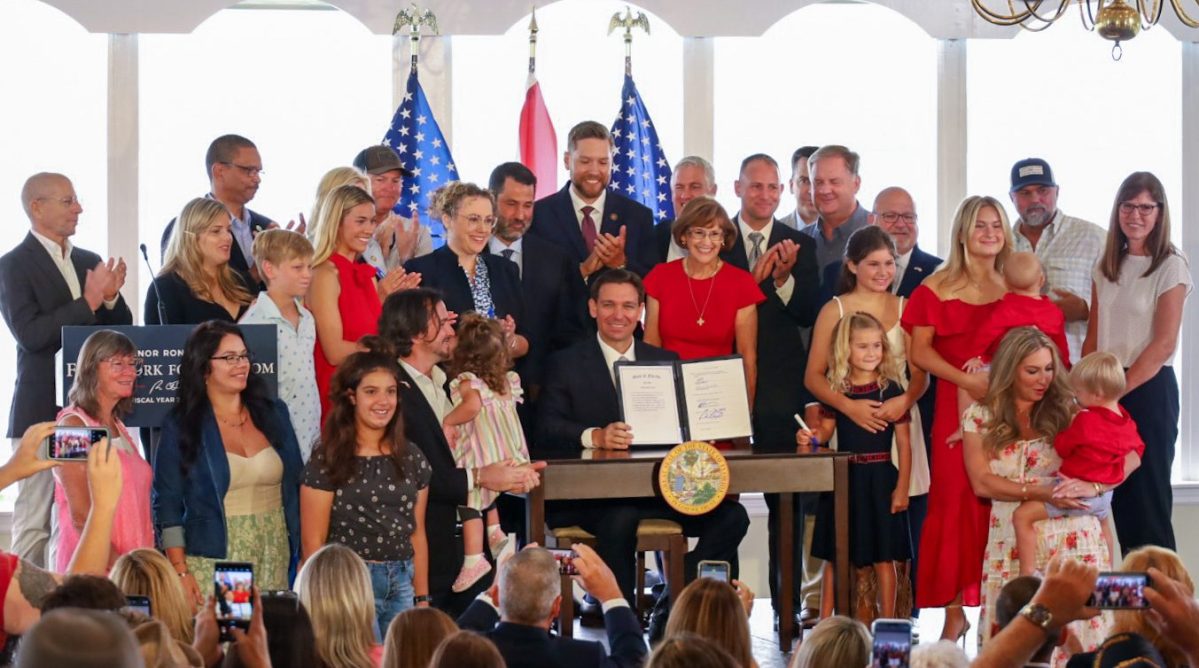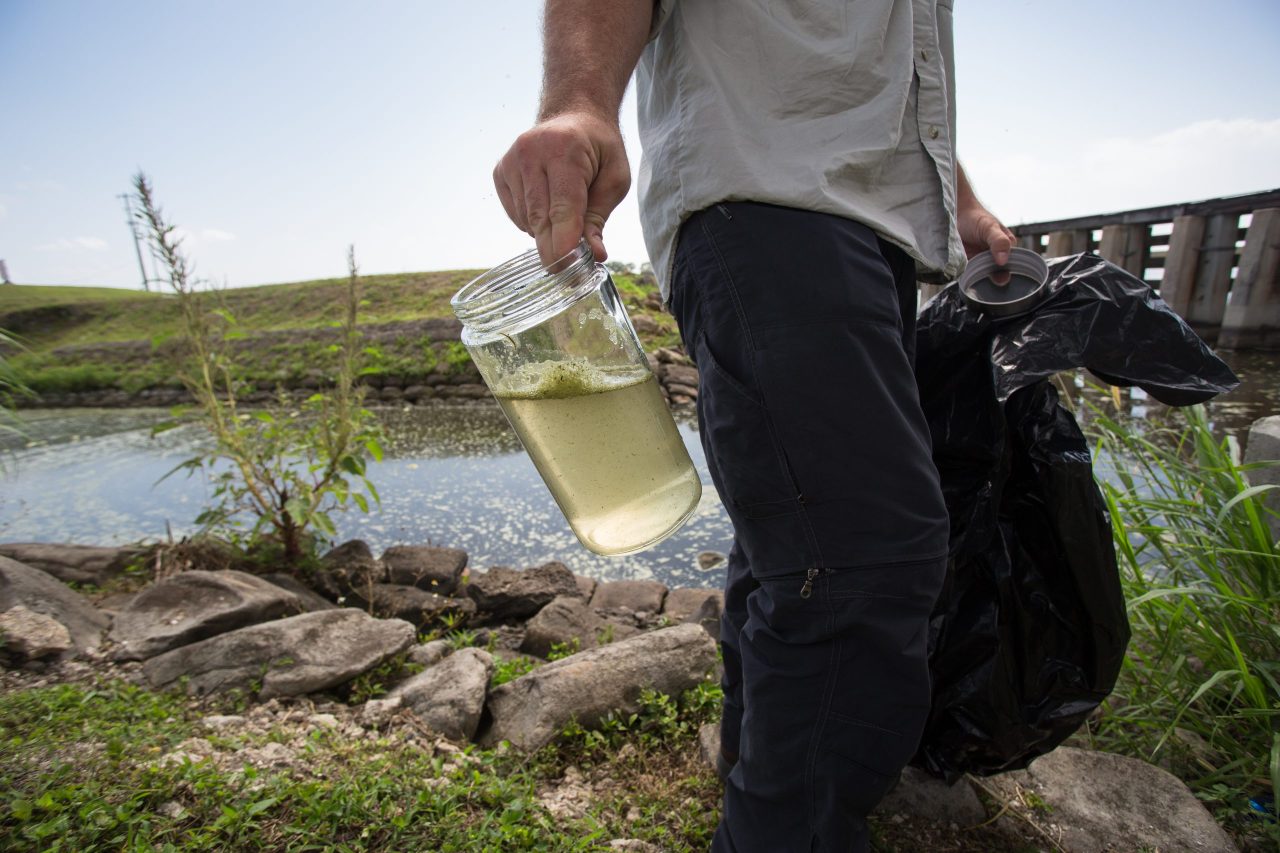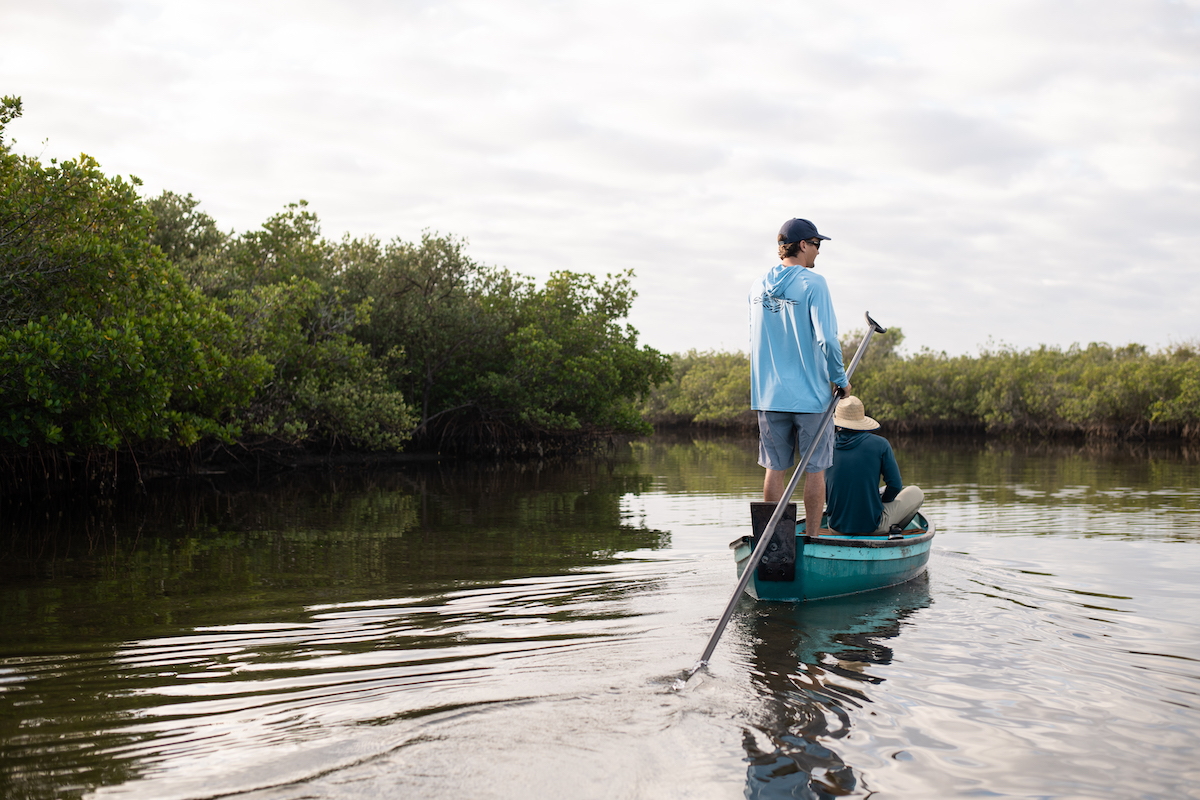
Florida finalizes clean-water bill and secures over $625 Million for Everglades restoration, water quality.
At the Pelican Yacht Club on the shores of the Indian River Lagoon in Fort Pierce earlier today, Florida Gov. Ron DeSantis announced House Bill 1379 and signed more than $625 Million in state funding for Everglades restoration and water-quality improvement projects.
The new bill and funding lock into law a portion of directives from an Executive Order issued earlier this year that called for $3.5 Billion over four years for Everglades restoration as well as a range of provisions to improve Florida’s environment.
$625 Million for Everglades restoration
Signed in 2000 to be a 50/50 cost-share investment between the state and federal governments, Everglades restoration is a monumental ecosystem restoration project designed to revive a struggling American treasure and help resolve south-Florida’s water-quality crisis.
The decades-old effort comes with a myriad of ecological and economic benefits, but the decades of work remaining hinges on continued annual funding from both Tallahassee and Washington D.C.
$625 Million designated this year by the state of Florida under the 2023 annual appropriations budget keeps the state’s investment on track with the record pace of recent years. (The federal investment in Everglades restoration for 2023 is still going through the annual appropriations process and won’t be finalized until later this year.)
House Bill 1379 to improve Florida’s waters
The new legislation, House Bill 1379, establishes comprehensive environmental protections largely focused on improving Florida’s water quality through reducing nutrient pollution.
Nutrient pollution from a variety of sources (stormwater, agricultural runoff, sewage and septic, etc.) can be extremely detrimental to the health of Florida’s waterways, fueling harmful algal blooms, like red tide and blue-green algae, and degrading essential habitat, like seagrasses.

This new measure seeks to reduce nutrient pollution into key waterbodies through enhanced protections, expanded wastewater initiatives, and stronger Basin Management Action Plans.
Basin Management Action Plans, or BMAPs, are “comprehensive set[s] of site-specific strategies to reduce or eliminate pollutant loadings and restore particular waterbodies to health.”
Basically, BMAPs are long-term efforts to restore impaired waterways by reducing pollution, such as nutrient pollution, from entering the system.
They rely on a broad range of solutions, such as Agricultural Best Management Practices (BMPs), Wastewater/Stormwater infrastructure improvements, and land acquisition/conservation, to reduce excess nutrients like nitrogen and phosphorus.
Many waterbodies throughout Florida have BMAPs designed specifically to improve their watershed, including the Caloosahatchee and St. Lucie Rivers, Lake Okeechobee, and the Indian River Lagoon.
HB 1379 calls on strengthening BMAPs by more specifically identifying and listing individual projects for implementation that will help reduce nutrient pollution to meet 5-year reduction milestones.
Saving the Indian River Lagoon
The bill also establishes a greater focus on restoring the Indian River Lagoon (IRL), a federally recognized Estuary of National Significance that stretches 150 miles along Florida’s east coast.
The IRL is one of the most biodiverse estuaries on the planet, but in recent decades, repeated harmful algal blooms fueled by excess nutrients have led to the loss of more than half of the estuary’s seagrasses, foundational to a healthy ecosystem.

HB 1379 creates the IRL Protection Program, which focuses on expanded water-quality monitoring efforts, allocates $100 million in funding for water-quality improvement projects, and establishes new requirements and prohibitions on septic systems within the IRL watershed.
Aging and failing septic tanks can be a particular problem in some areas of the IRL, leaching excess nutrients into the lagoon system.
HB 1379 will prohibit installation of new septic tanks where central sewer is available and require existing septic systems to connect to central sewer or upgrade to enhanced nutrient-reducing systems by 2030.
The bill also secures $100 million for “water quality projects to benefit the IRL,” and requires BMAPs for the Indian River Lagoon to be updated every 5 years.
Another goal of the bill is to continue upgrading the state’s wastewater infrastructure under the newly created Water-Quality Improvement Grant Program, which replaces and expands on the original wastewater grant program and has $200 million in funding for eligible projects statewide.
Other provisions from the bill include statewide efforts to improve local government long-term comprehensive plans and measures to expedite the state’s land conservation efforts through the Florida Forever program.
To learn more about House Bill 1379, check out FDEP’s informational page on the legislation.